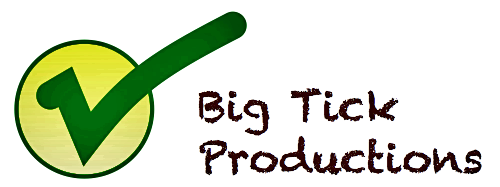Adjectives are what put colour into your language. Some of the most confusing adjectives are the ones that are actually past participle verbs (mostly ‘ed’) and present participle verbs (’ing’).
The applicable grammar rule for these adjectives is that we use the past participle to describe how something or somebody is making us or somebody else or something else (an animal) feel. So for example, if you are not interested in the thing that is happening to you, you might say 'I am bored'.
We use the present participle to describe the person or thing that is causing the feeling. So if you are not interested in a movie you are watching you might say 'This movie is boring'.
These adjectives can follow the verb to be as in the examples above, in either the 'ed' or the 'ing' form.
They can follow the verb feel in order to express the feeling being expressed. This of course means that only the 'ed' form can be used this way. For example, you might say, 'I feel bored' or 'I am feeling very bored right now'.
 They can also follow the verb found plus subject noun with or without the verb to be. For example, 'I found the movie very confusing' or 'I found the movie to be very confusing'. Here the speaker is always talking about the cause of what is being felt, so only the 'ing' form can be used with this verb.
They can also follow the verb found plus subject noun with or without the verb to be. For example, 'I found the movie very confusing' or 'I found the movie to be very confusing'. Here the speaker is always talking about the cause of what is being felt, so only the 'ing' form can be used with this verb.
They can follow the verb feel in order to express the feeling being expressed. This of course means that only the 'ed' form can be used this way. For example, you might say, 'I feel bored' or 'I am feeling very bored right now'.
 They can also follow the verb found plus subject noun with or without the verb to be. For example, 'I found the movie very confusing' or 'I found the movie to be very confusing'. Here the speaker is always talking about the cause of what is being felt, so only the 'ing' form can be used with this verb.
They can also follow the verb found plus subject noun with or without the verb to be. For example, 'I found the movie very confusing' or 'I found the movie to be very confusing'. Here the speaker is always talking about the cause of what is being felt, so only the 'ing' form can be used with this verb.
Like other adjectives, many of these 'ed' and 'ing' adjectives can be put before a noun in order to describe it. For instance 'bored housewives', 'bewildered spectators' and 'confused students' or 'a boring movie', 'a bewildering array of choices' and 'a confusing lecture'.
Most learners of English get these frustrating and confusing adjectives mixed up, using the 'ed' form when the 'ing' form is needed and vice versa. Whereas for native speakers they present very little problem. The reason for this is that like all other uses of language this is just habit. Native speakers have been using these words in this way for so long they don't need to think about what they are saying and why, they simply open their mouths and speak, or pick up their pens and write.
Apps are a good way of creating language habits as they allow you to practice regularly, anytime, anywhere. The Using 'ed' and 'ing' Adjectives app has been designed to help you to recognise when to use the verb, the noun and the two adjective forms of these words. There are many questions with varying sentence structures to help ESL students get familiar with the way that these confusing adjectives fit into everyday language. This should improve both your writing and your speaking and help with various ESL test such as IELTS and TOEFL.
 So, don't be concerned. These tricky words can be learnt and mastered. Click and give the free version of the Using 'ed' and 'ing' Adjectives app a go.
So, don't be concerned. These tricky words can be learnt and mastered. Click and give the free version of the Using 'ed' and 'ing' Adjectives app a go. You can download it from either Apple or Android.













